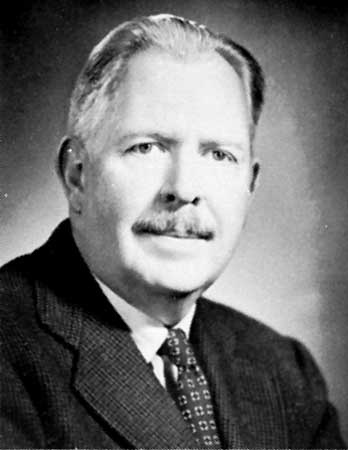Linton, Ralph
American anthropologist
born Feb. 27, 1893, Philadelphia, Pa., U.S.
died Dec. 24, 1953, New Haven, Conn.
 American anthropologist who had a marked influence on the development of cultural anthropology.
American anthropologist who had a marked influence on the development of cultural anthropology.As an undergraduate at Swarthmore College, Philadelphia, Linton pursued archaeological interests, taking part in expeditions to New Mexico, Colorado, and Guatemala (1912 and 1913). Following his graduation (1915) he examined a prehistoric site in New Jersey, the subject of his first professional writings. He returned to the Southwest again (1916 and 1919), but a two-year stay in the Marquesas Islands, beginning in 1920, diverted his interest from archaeology to ethnology. He became curator of American Indian and Oceanic collections at the Field Museum of Natural History, Chicago (1922–28). He received his Ph.D. from Harvard University (1925) and made a one-man expedition to Madagascar and East Africa (1925–27) that resulted in his major ethnological work, The Tanala, a Hill Tribe of Madagascar (1933), and a major collection of artifacts, now mainly at the Field Museum.
He was a professor at the University of Wisconsin, Madison (1928–37), Columbia University (1937–46), and Yale University (1946–53). The Study of Man (1936) is frequently regarded as his most important theoretical work. It is an influential synthesis of theories from anthropology, psychology, and sociology. In The Cultural Background of Personality (1945), he advanced the idea of “status personalities,” common elements that form the basic personality type in a culture. His final major work, The Tree of Culture (1955), elaborated on human origins and the biological and primate influences on cultural behaviour.
- Joshua Tree National Park
- Josiah
- Josiah Gorgas
- Josiah Royce
- Josiah Wedgwood
- Josiah Winslow
- Josip Broz Tito
- Josip, Graf Jelačić
- Josip Jelačić, Graf
- Josipovici, Gabriel
- Jospin, Lionel
- Jos Plateau
- Josquin des Prez
- Jost Amman
- Jostedals Glacier
- Jost Van Dyke Island
- Josuah Sylvester
- José Agostinho de Macedo
- José Agustín
- José Américo de Almeida
- José Antonio, marqués de Estella Primo de Rivera
- José Antonio Primo de Rivera, marqués de Estella
- José Antonio Páez
- José Asunción Silva
- José Batlle y Ordóñez